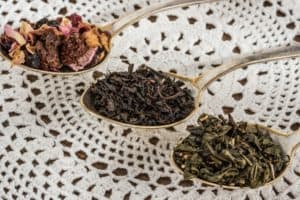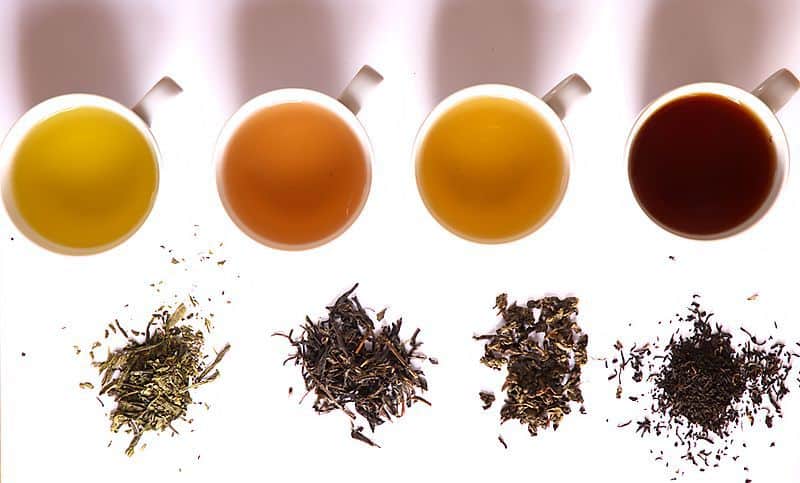I love tea. I love black tea, rooibos tea, white tea, green tea, chai, herbal–if you can steep it in a pot, I’m happy. But I got to wondering what kind of effects the main types, green and black, really have on our bodies. What’s the difference?
How It’s Made
You may be surprised to find out that black tea and green tea actually come from the same plant. Camellia Sinensis is a small shrub that grows best in wet subtropical climates like those of South and Southeast Asia. To harvest green tea, the leaves of the shrub are harvested and steamed almost immediately after harvest, maintaining the green color. Black tea is crushed, allowing enzymes to act on the leaves and transform them into an oxidized and more potent chemical compound.
What’s In It?
Some people are under the mistaken impression that green tea is caffeine-free. All tea that uses leaves from Camellia Sensis will have caffeine–anything that is truly caffeine-free will be herbal and isn’t a true tea if you want to get technical. There is a significant difference between black and green in regards to caffeine content though. This can vary wildly depending on the brand and the steeping time, but typically black tea will have anywhere from 1-2x the amount of caffeine as a cup of green. This can be good if you’re looking for an energy boost, or bad if you’re trying to cut down on your caffeine intake. The particular botanicals in each specific blend will also change the ingredients of the cup, but tea should always be natural bits and pieces of plants and nothing else!

What Can It Do For Me?
Black tea is a natural and less potent source of caffeine than coffee, and so can give you a little help up in the morning without making you jittery. It also contains many antioxidants that benefit the body by reducing the oxidation of free radicals, harmful molecules in the body taken in by the environment. Both contain a small amount of fluoride, but black tea delivers a bigger punch in this category.
Green tea is incredibly versatile. It takes the lead in cancer prevention, containing four catechins known to fight certain types of cancer cells. Both promote cardiovascular health by improving blood flow and lowering bad cholesterol. Plus, green tea is excellent for some natural stress relief.
Both types of tea have some great things to offer, so get on the bandwagon!


